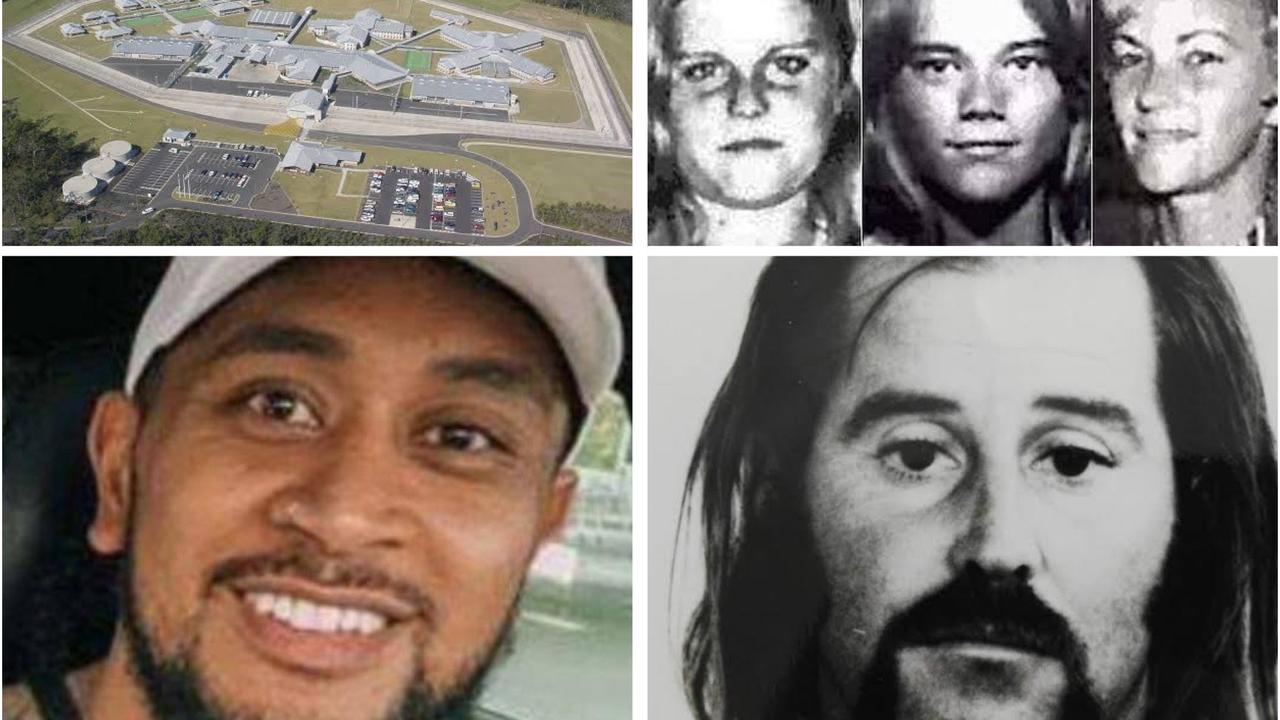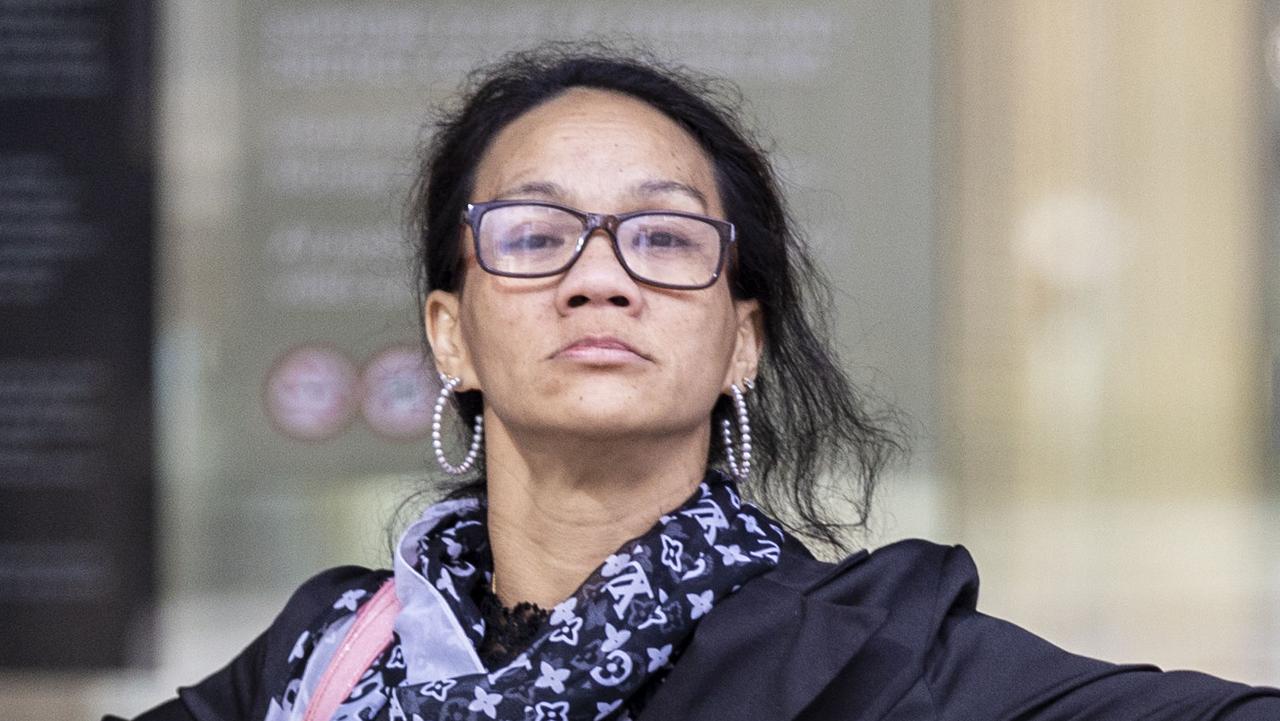Esuarve founder Joseph Te Puni-Fromont reveals reality of troubled young people’s lives – and how they can be saved from life of crime
They rob cars. Break into houses. Raid businesses. We know them from grainy CCTV footage. But who are these kids, and why do they do it?
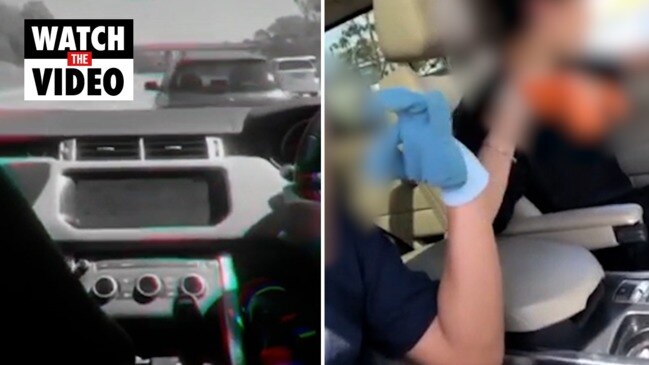
Police & Courts
Don't miss out on the headlines from Police & Courts. Followed categories will be added to My News.
The images are, by now, all too familiar.
A grainy CCTV picture of wiry young figures, hoodies drawn low across their brows. Sometimes they are seen breaking into vehicles. Other times into houses.
Familiar too, the comments such images attract.
“Something needs to be done.”
“These kids need to be locked up”.
“Name and shame.”
“If I ever catch up with them ...”
Few people ever get to see beyond those masks. If they are caught and sent to court, the law precludes media from saying their names or showing their faces.
Joseph Te Puni-Fromont is an exception. He knows their names. Sees their faces every day. The teenage car thieves. The home raiders. The ones breaking into shops and small businesses.
The ones we would lock away.
He looks them in the eye. Listens to their story. Cries with them. Tells them that they are part of a family. That they are loved.
And they cry too. Because for most of them, it’s the first time they have ever heard the words.
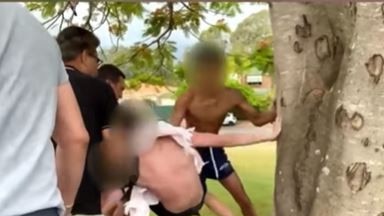
A TROUBLED YOUTH
Mr Te Puni-Fromont is founder of a Gold Coast charity called Everything Suarve, or Esuarve for short.
With facilitators Steve Henry and Jeremy Rodgers he runs 10-week programs, helping 20 young people at a time referred by the Queensland Police Service and residential care services.
Many come from enormously troubled backgrounds. Some are homeless. Others don’t know their parents. A lot have been in juvie. All have been in trouble with the law.
According to Mr Te Puni-Fromont, 33, they are “numb”, in “zombie mode”.
When they steal cars, they at least feel something.
“They’ve learnt to numb themselves from their past experiences,” he says. “When they’re getting this natural high by stealing a car, it’s a feeling for them, it’s like an adrenaline rush. For most of those kids it’s like the first time they’ve felt something.”
He can connect, can shake them out of it. Because he once was the same way himself.
“I grew up in commission housing in New Zealand. I was fortunate enough that I had very strong parents that had showed us how to work hard. But all around us were drugs, gangs and alcohol. That was the type of environment that I grew up in,” he says.
“... As I grew older I started making pretty dumb choices. From 14 to 18 I lost six of my best friends. Drink driving accidents and suicide, along with poor choices, played a factor.
“At 15, I got expelled from school. By the time I turned 16, my dad was a police officer by then, and he caught me drug dealing.
“I started this program essentially because I had a real understanding and lived experience of what it was like to be a young person, make dumb choices, and not be able to emotionally deal with my mental health and wellbeing.”
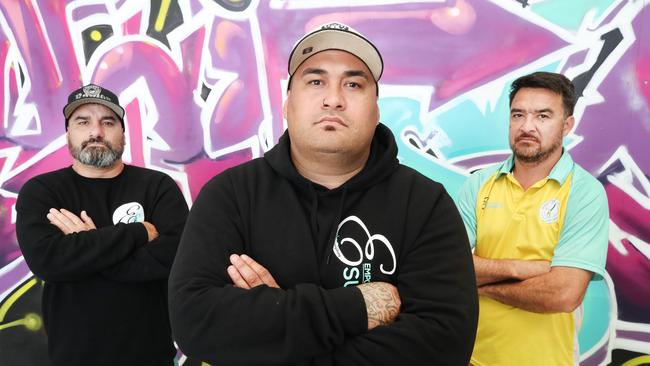
TOUGH LOVE
Amid an escalating youth crime problem, Esuarve’s results are attracting national attention.
Only two of 142 young people to have completed it in the last three years have reoffended. Ninety per cent have found employment, their days of theft and chaos behind them.
It’s not an easy program for the kids. It challenges them. Makes them think about their actions. Take responsibility.
Mr Te Puni-Fromont says the first and biggest challenge is getting them through the door.
“If we can get a kid here for one or two days, usually they will finish the program. But the hardest barriers we have is sometimes the kids may make excuses up at home (not to come).
“... The difference with us is, if you make an excuse, we will show up at your house.
“We’ll go and get them. There’s no excuses here. It’s so easy for young kids to come up with an excuse, but you’re talking to people who have heard all the excuses up in the world.
“So we will turn up at your door to show you how much we care, show you how much we love you and want to help you and if that means we’ve got to go and get you every day until you turn up, we’ll do that as well.”
There is another reason they come: food. Because wherever there home is, Steve says, there is usually none.
“You’d say, why are you fellas caught stealing, and they’d say, ‘Ah uncle, I haven’t had breakfast, I haven’t eaten since we had lunch yesterday.”
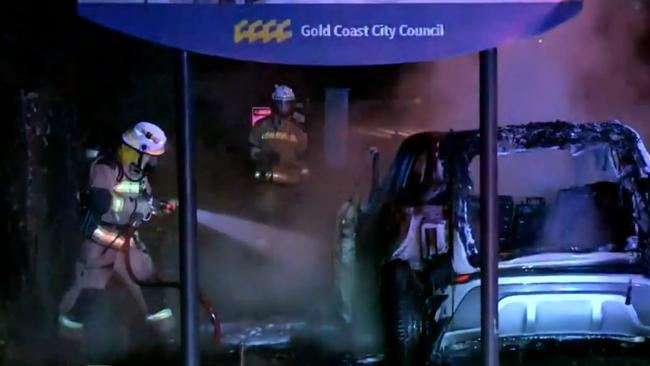
THE YAWNING GAP
Esuarve fill a gap. Not a small one, a yawning one. The gap left by absent parents.
“We’re talking about parents that are drug and alcohol addicts. We’re talking about some kids that don’t know their own parents. We’re talking about young people coming from residential care,” Joseph says.
“When you can imagine that type of environment where they’ve grown up, you understand why a lot of their behaviours or the choices they’re making is because of where they’ve come from.”
Kids who, deprived of responsible parents, are as good as excluded from society in ways most of us would not realise – with no birth certificate, for example, they can’t easily get a tax file number, locking them out of employment.
Joseph gives an example of a young man who had been caught stealing cars and spent time in juvenile detention before arriving at Esuarve’s door in Ormeau.
“His story was his parents moved over here from New Zealand, left him and his siblings here and moved back to New Zealand,” he says.
“So he had been absolutely homeless here on the Gold Coast. At 16 he came into our program. We helped him deal with his traumas. We gave him life skills and more importantly we helped to get him into work.
“When he got into work we asked him, what is the first thing you are going to buy when you get your pay? And he goes, ‘I’m not going to buy anything. I need to work to get my sisters and brothers off the streets so that I can get all my family back.’ That was his priority.”
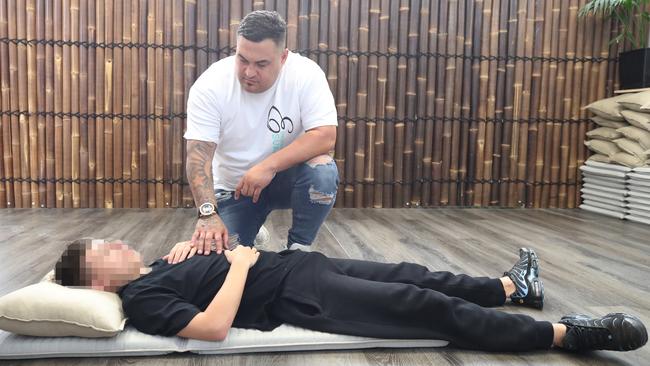
PART OF A FAMILY
An absence of parents for these kids means an absence of physical basics like food, shelter and clean clothing.
It means these children also miss out on something else, something equally important – on learning life’s lessons about taking responsibility, about understanding the consequences of choices, on right from wrong.
It’s another gap the Esuarve family fills.
Joseph tells the story of another youth, who stole from a Woolies store the team were visiting.
It tells you everything you need to know about these kids when you learn what he took: a banana, a water bottle, and two snack bars.
But that didn’t mean he got sympathy for what he did.
“Me and Steve were actually up there buying a gift card. We do a student of the week every week. And when we were up there a lady pulled us aside and said, hey, there was a young man wearing your t-shirt, they stole while they were here,” Joseph says.
“We got defensive and said, well show us the video. They showed and sure enough, it happened.
“We then went straight back to the team, stood the team up and said, alright team, who stole?
Straight away the four boys all stood up: ‘Uncle, that was us’.
“ ‘Why?’ First thing the young man said was ‘Uncle, I was hungry’. So he went up, stole a water bottle, a banana and two chewy sticks.
“Then I asked the other boys and I said, so why didn’t you boys stop your brother? And so we opened up that conversation there to understand this has a reflection on all of us.
“What we then did is we took those boys, the whole team, marched them straight back up to Woolies. Got the store manager to come out. I apologised, I said ‘Look, I’m sorry, I should have given our boys enough strength, I should have fed them so they didn’t feel like they had to do that.’
“Then our boys all stood there and they said, ‘No uncle, this isn’t on you, we knew what we were doing.’
“They could see how embarrassed we were, how the whole crew were.
“And the lady just stood there like, blown away, what the hell, like, who are youse?
“But that’s what we do.
“If she had of rung the cops, these boys are used to dealing with the cops, that’s just another day for them.
“What’s not another day is when they’ve just made their whole family feel a certain way, and that family is Esuarve.
“The following week this young man went straight back up to Woolworths and went in and apologised to the lady by himself, without us.
“We then walked in, went to buy another gift card. The lady was there and she said, hey, can I talk to you. And we were thinking ‘ah shit, it’s happened again’.
“She said, ‘I need to compliment you on what you guys done. That young man just came back into the store, took ownership, and has been just a gentleman ever since.”
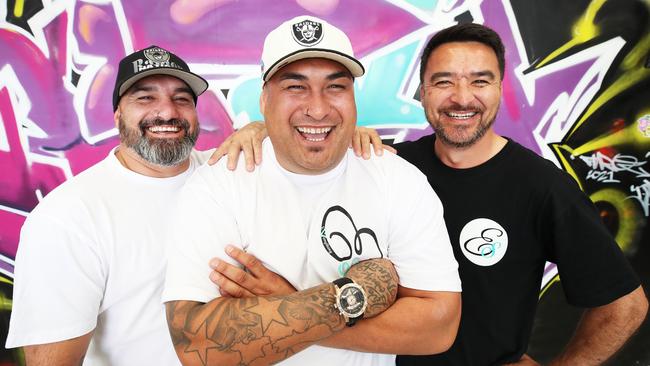
AN EASIER RIDE
These are the life lessons Esuarve imparts. It’s not always easy on the kids – but it works.
Joseph says there is another way to go. The way so many people want.
It’s easier on the kids – and they learn lessons this way too. But not the right ones.
“Locking young people up and thinking they’re going to come out differently or different people is far from the truth,” he says.
“The reality is these young people, when they make mistakes, they get locked up, they’re going into juvie and they meet new friends, they’re networking with people and they’re coming out with better (crime) skills.
“When you come to a place like Esuarve we’re going to help you understand firstly, why you are choosing to make these mistakes. Where is that coming from. And listening to their story. That’s what we do.
“We then give them better tools to be able to make conscious choices so that when they’re out in the community, they know that we’re standing behind them, ready to, not physically, but to kick their arse.
“We’re the ones, because we’ve built so much trust and love and respect with them, when we say ‘fuck you let us down, we’re disappointed’, these kids’ faces drop. Because they’ve never been told that before.”
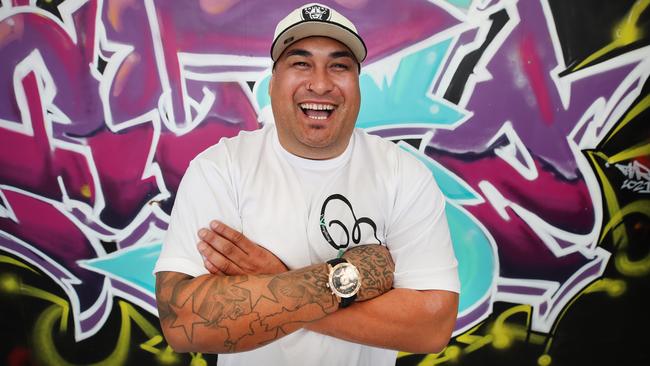
THE TRUE VALUE
It’s estimated keeping one child in juvenile detention costs $750,000 a year.
Esuarve helps 60 children a year, getting by on $400,000.
It relies heavily on business community donations, with a recent golf day raising $45,000.
Its success rate, measured in dollars saved alone, is astonishing.
But then there are the successes that can never be measured. The crimes not committed. The people who don’t become victims. The young people who don’t, like Joseph’s teenage mates, end up in an early grave.
And the other intangibles, that will never make statistics. The moments that mean everything to kids who had known nothing but trouble.
“One of our young kids, he had his 15th birthday here last month,” Jeremy says. “And Joe gave him a birthday present, and he just went, ‘Oh my God’. He was in tears.
“He’s been couch-surfing since he was 11.”
The present that left this boy overwhelmed? “A nice woolly jacket, some clean undies, a toothbrush, some socks. Just a couple of plain t-shirts and some jeans.”
Essentials that most teenagers take for granted.
Behind the hoodies and the masks in the grainy TV images that fill news bulletins and our social media feeds, these are the faces of Queensland’s youth crime crisis.
The faces most of us never see.
“Eighty per cent of our kids come from nothing,” Joseph says.
“If they’ve got no money, got no food, what are they going to do? They’re going to go steal.
“Ultimately what we’re trying to do is pick these kids up before they make those bloody wrong choices.”
>>> For more details about Esuarve, or to make a donation or offer help, please visit esuarve.com.au


